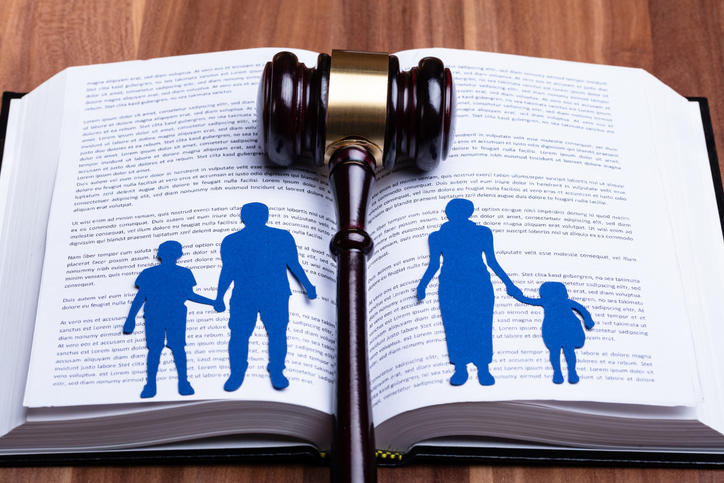When you’re facing a family law issue – such as divorce, domestic abuse, or child custody – it can feel overwhelming. These situations are often emotional, stressful, and complex. Having the right legal support makes a significant difference, but the cost of legal advice and representation can be a concern. That’s where legal aid for family law may come in.
Legal aid is government-funded assistance that helps individuals afford legal services if they cannot pay for them themselves. In family law, this support can be crucial, especially in cases involving children, safety, or serious disputes. But can you get legal aid for family court? Let’s explore when it’s available, who qualifies, how to apply, and what your options are if you don’t.
When Is Legal Aid Available?
Family court legal aid is not available for every kind of case. But it is available for some of the most serious and sensitive situations, especially when safety, abuse, or children are involved. You may be eligible for legal aid in family court if:
- You’ve experienced domestic abuse or need protection from an ex-partner.
- Your child is at risk of harm, neglect, or being taken into care.
- You’re facing forced marriage or female genital mutilation (FGM) concerns.
- There’s a serious dispute over child arrangements, like who the child lives with or sees, especially if abuse or control is part of the situation.
- Your divorce or financial dispute involves a history of abuse or coercive control.
If any of these situations feel familiar, stop here for a moment. You might already be eligible. Legal aid family law support exists to protect people exactly like you. And the next step is finding out if you qualify.
Who Qualifies?
You’ll need to meet two sets of criteria to access legal aid for a family law case:
The Legal Side
Your case must fall under one of the categories above – things like abuse, risk to a child, or serious safeguarding concerns.
The Financial Side
You’ll also need to show that you can’t afford legal help on your own. You may qualify if:
- You’re on a low income or benefits like Universal Credit.
- You have minimal savings or assets.
- You can provide documents – like bank statements, benefit letters, or payslips—to show your financial situation.
If you’re applying because of domestic abuse, you’ll also need some kind of proof of the abuse. That could be a non-molestation order, a GP letter, a report from a support organisation, or similar.
How to Apply
We know this part can feel intimidating, especially when you’re already dealing with so much. But the application process doesn’t have to be hard, especially with the right solicitor helping you. Here’s how to apply for legal aid for family law in the UK:
- Find a solicitor who offers legal aid. Not every solicitor does, so make sure to check.
- Book an initial consultation. You’ll go over your case and discuss your eligibility.
- Bring documents. You’ll need things like payslips, benefit letters, or proof of savings, plus any documents related to abuse or safeguarding concerns.
- Let your solicitor submit the legal aid application for you. They’ll handle the form and supporting documents through the Legal Aid Agency.
If your application is approved, you’ll get help with legal fees – and that may include mediation, legal advice, and court representation.
What If You Don’t Qualify?
If you’ve just realised you might not be eligible for legal aid, please don’t panic. You still have options. There are other free or low-cost legal support services that can help:
- Citizens Advice – They can help you understand your rights and your next steps.
- Law Centres or Pro Bono Services – Some lawyers offer free advice for people who can’t afford it.
- McKenzie Friends – These are trained individuals (not solicitors) who can help you prepare and support you in court.
- CourtNav – A helpful online tool that prepares legal forms and connects you to advice services.
- Mediation vouchers – In some cases, the government provides funding for family mediation.
You Deserve Support—Here’s What to Do Next
If you’re facing a family law issue, don’t try to manage it on your own. The stress, the paperwork, the emotions—it’s a lot. But support is out there, and you might qualify for legal aid for family law without even realising it.
Take the first step: speak with a solicitor who understands what you’re going through. At Davis-Law in Buckinghamshire, we guide people like you through how to apply for legal aid for family law, check if you’re eligible, and give you honest, compassionate advice.
You’ve got enough on your plate right now. Let us help you move forward.
Frequently Ask Questions
How Much Does a Family Court Case Cost in the UK?
Costs vary depending on the complexity of the case and whether you have legal representation. Filing a basic child arrangements application costs £232, but total costs—including solicitor’s fees—can range from hundreds to several thousand pounds.
Can I Qualify for Legal Aid in the UK?
Yes, you can qualify if your case falls under an approved category (such as domestic abuse or child protection) and your income and savings are below a certain level. A solicitor can assess this for you.
How Long Does Family Court Take In the UK?
Some straightforward cases may conclude within a few weeks, but others—especially those involving children or disputes—can take several months or over a year.
Do I Have to Attend Family Court in the UK?
In many cases, yes. Some matters are now handled remotely via video call. However, if an agreement can be reached through mediation or alternative dispute resolution, court attendance may be avoided.
